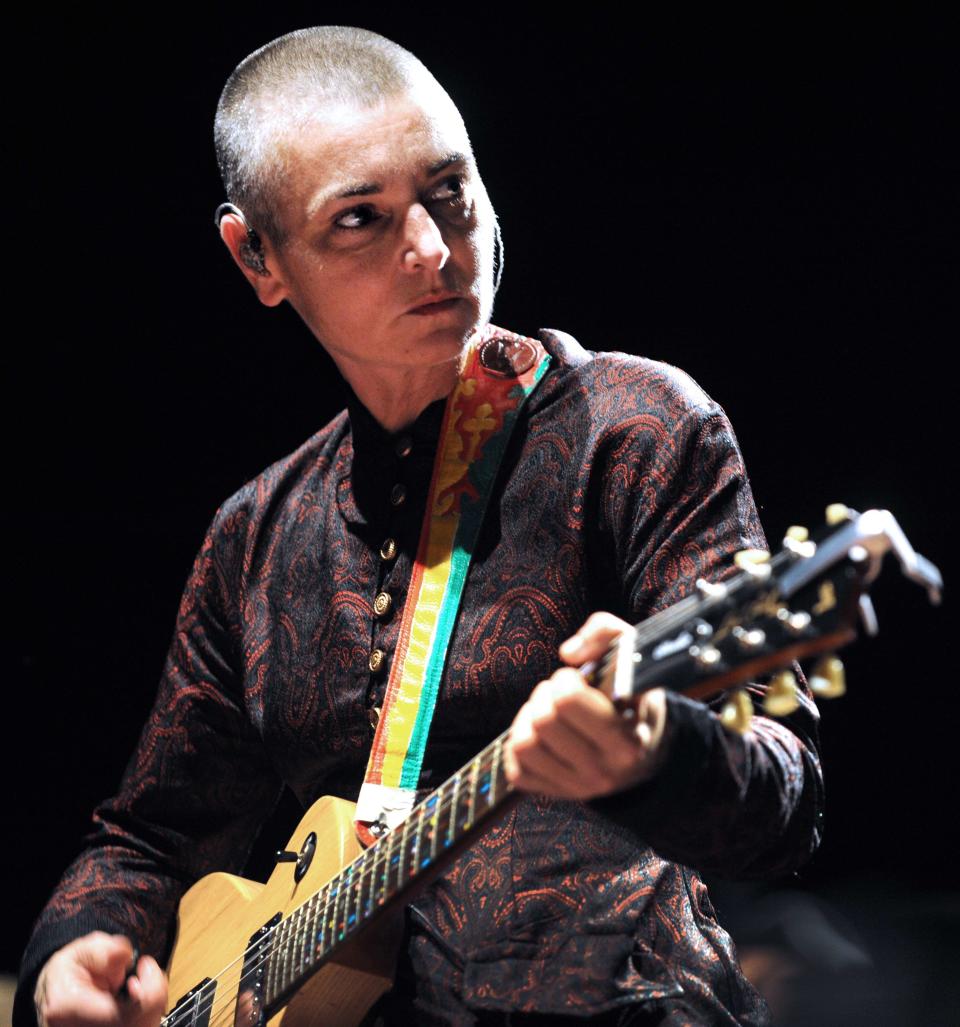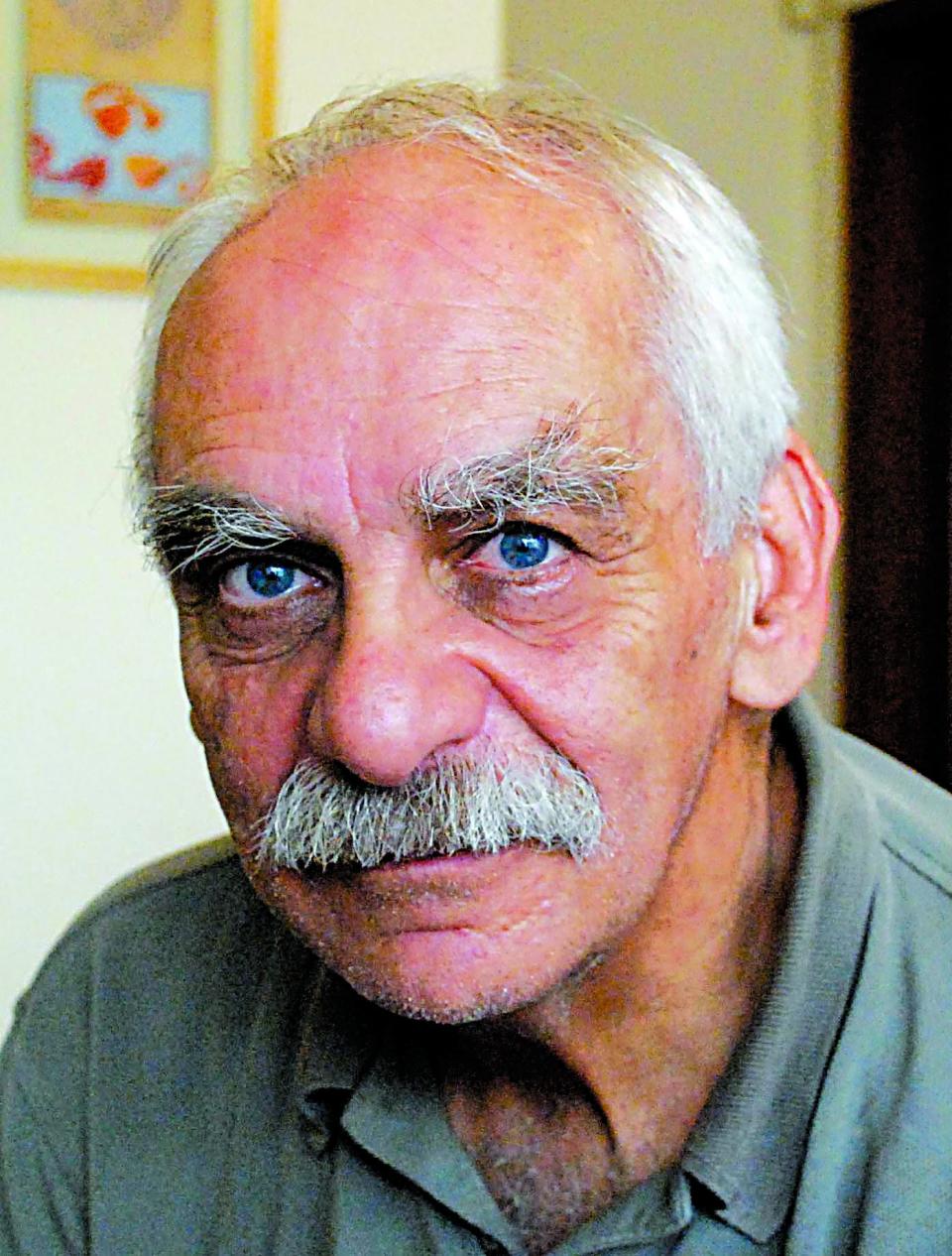Azzi: Sinéad O'Connor's death too tragic, too soon
- Oops!Something went wrong.Please try again later.
- Oops!Something went wrong.Please try again later.
Last week, while I was on the Isles of Shoals, Sinéad O'Connor died.
“Police were called at 11:18hrs on Wednesday, 26 July to reports of an unresponsive woman at a residential address in the SE24 area," a statement from London's Metropolitan Police read. “Officers attended. A 56-year-old woman was pronounced dead at the scene. Next of kin have been notified. The death is not being treated as suspicious.”
“Whatever it may bring, I will live by my own policies," Sinéad O'Connor once said. "I will sleep with a clear conscience, I will sleep in peace.”

Sleep in peace, dear Sinéad, sleep in peace.
I love Sinéad O'Conner. I love her voice, her range, her fearlessness confronting hypocrisy and materialism, her willingness to even put her career in jeopardy when, in 1992, on "Saturday Night Live," she ended her set by tearing up a photo of Pope John Paul II, protesting, she explained, the Catholic Church's silence on child sex abuse.
I love listening to Mandinka: "I'm dancing the seven veils / Want you to pick up my scarf / See how the black moon fades / Soon I can give you my heart."
I could give her my heart.
Mostly I love Sinéad because she challenged me to consider - in the way many younger people do - the way I think about my journey, my vision, my faith.
She asked me to consider what I've been offered, the choices I've made, the mistakes I've made.
As I consider her passing this morning I think about some others who've impacted my life, about others who've traveled with me from the shelter of my father's grapevine to the beauty of pomegranates and fresh figs - about others who travel with me still.
“I saw my life branching out before me like the green fig tree in the story," Sylvia Plath wrote in The Bell Jar. "From the tip of every branch, like a fat purple fig, a wonderful future beckoned and winked… I saw myself sitting in the crotch of this fig tree, starving to death, just because I couldn't make up my mind which of the figs I would choose. I wanted each and every one of them, but choosing one meant losing all the rest, and, as I sat there, unable to decide, the figs began to wrinkle and go black, and, one by one, they plopped to the ground at my feet.”
Sylvia Plath died at age 31. She travels with me still.
Billie Holliday died in 1959 at age 45. Her haunting rendition of the transformative anti-lynching song, "Strange Fruit," haunts me and travels with me still.
I have a 1983 calendar from Azzi's Bakery (distant relation) in Lawrence, Massachusetts, that celebrates Roberto Clemente, a Puerto Rican baseball player who played for the Pittsburgh Pirates. Clemente, who died In a plane crash in 1972 while delivering aid to Nicaraguan earthquake victims, believed "Any time you have an opportunity to make a difference in this world and you don't, then you are wasting your time on Earth."
I believe that.
Clemente died at age 38. He travels with me still.
I know life is not predictable; know that at any moment a song, a word, a chord, a shaft of light, a moment of action or beauty could penetrate our heart and transport us into an unfamiliar dimension.
We need to be attentive to such moments.
Palestinian writer and activist Ghassan Kanafani, assassinated by Mossad in Beirut at age 36, once wrote "My political position springs from my being a novelist. In so far as I am concerned, politics and the novel are an indivisible case and I can categorically state that I became politically committed because I am a novelist, not the opposite."
I get that.
I get that Charlie "Yardbird" Parker Jr., saxophonist and composer and the first jazz musician I ever cared about, died at 34.
I get that Medgar Evers, MLK and Malcolm X never made it to 40; that Michael Schwemer, James Chaney and Andrew Goodman barely made it into their 20s.
They travel with me still.
“Why one writes is a question I can answer easily," Anaïs Nin wrote in her diary, "… I believe one writes because one has to create a world in which one can live… I had to create a world of my own, like a climate, a country, an atmosphere in which I could breathe, reign, and recreate myself when destroyed by living. That, I believe, is the reason for every work of art …"
Shuhada' Sinéad O'Connor created a world she tried to live up to.
I get that nearly everything in this world can be robbed, stolen, appropriated - I don't get it when beauty is deliberately ignored or marginalized.
This week, as I listened to her music and read reports about her life I have been struck by how little acknowledgement there has been in the Public Square that she was Muslim, a woman who had not only converted to Islam in 2018 when she posted on Twitter: “This is to announce that I am proud to have become a Muslim" but who was the first woman, in my experience, to call the Adhan, the Muslim call to prayer, within a mosque.
Her new name, Shuhada’ Davitt, which she used in her non-professional life, means “one who bears witness” in Arabic. Shuhada’ is derived from the Arabic word Shahada, the Islamic declaration of faith in which Muslims bear witness to their belief that there is only one God and that Mohammed is his prophet.
Shuhada' Sinéad O'Connor Davitt insisted we bear witness.
Sleep in peace, Sister Shuhada', sleep in peace.

Robert Azzi, a photographer and writer who lives in Exeter, can be reached at theother.azzi@gmail.com. His columns are archived at theotherazzi.wordpress.com.
This article originally appeared on Portsmouth Herald: Azzi: Sinéad O'Connor's death too tragic, too soon

